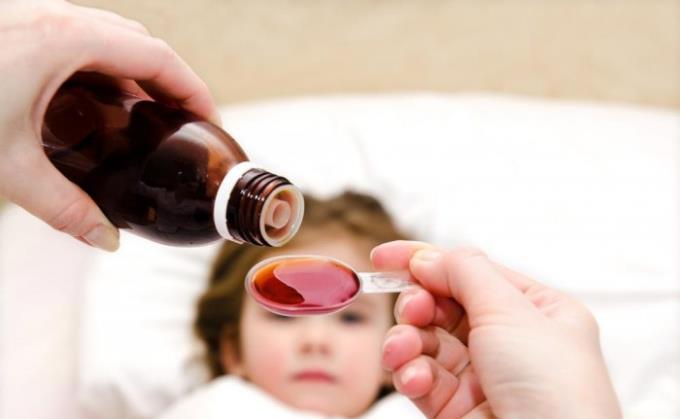How to give medicine to your baby is very important. Just a little bit, you can also make your baby face the risk of poisoning or severe allergies. Even the illness persisted and became more complicated. Check if I often make the following 6 mistakes to correct my mother!
Surveys of health experts show that every 8 minutes, a baby gets the wrong dose or the wrong dose of medicine, and more than a quarter of the babies are babies under 1 year old. Some babies, due to a little mistake of adults while giving the medicine, face serious complications, even death.
Most of the mother's mistake in giving medicine to your baby is using liquid pain relievers, such as fever reducers, acetaminophen, ibuprofen, antibiotics. To reduce the risk of children being negatively affected when taking the wrong medicine, mothers should "lie on their hearts" with the following:
1 / Give your baby the wrong dose
Always follow the dosage recommended by your doctor or pharmacist, otherwise follow the directions on the package. Most baby pills are broken down based on the baby's body weight.
With liquid medicine, mothers should give the baby enough ml of the drug as prescribed by the doctor, measuring exactly with the teaspoon or the ml measuring device available in the product. Ideally, mothers should have a syringe available to measure the correct amount of liquid medicine.

How to give the medicine: Take the right dose (Part 2) Children are more sensitive to the drug than adults. If you give your baby the wrong dose, even a few over-the-counter pills can be harmful to your baby. Here are some ways to give your baby confidence to take medicine.
2 / Give the child overdose
Usually, this error occurs consecutively with the mother taking care of the newborn. The baby is too young to tell his mother that he has taken the medicine. So sometimes, because she is too busy or anxious, she cannot remember that the baby took the medicine on time.
To limit this problem, mothers should clearly write in the baby's medication schedule for the day, tick each time after completing a course of taking. If you accidentally miss a dose, absolutely do not voluntarily double it for the next time to make up for it. Instead, talk to your doctor or pharmacist for advice.
3 / Take two doses too close together
The schedule is also very important in how to safely give your baby medicine. Instead of drinking messy, not at a set time, mothers should give the baby medicine according to the doctor's curfew. Do not push two doses too close together.
4 / Confusion about the unit of measurement of the drug

Mother remember to give the baby the right medicine according to the dosage prescribed by the doctor
Out of milligrams, milliliters to micrograms, division of drug units is often confused with motherhood. After receiving the prescription from the doctor, mothers should carefully ask how to use and the correct amount of medicine for the baby to drink safely. Make sure you know how to give medicine to your baby.
5 / Give the child the wrong medication
Always read the instructions for use and the ingredients and expiry date printed on the package. Avoid getting the medicine mixed in one bottle or another to ensure the health of your baby and the whole family. Make a habit of periodically checking your family medicine cabinet for expired medications. The drug is too great not only to decrease effectiveness but also contain immeasurable dangers.
6 / Wrong place
It is not uncommon for the ear drops to happen, but the mother drops her nose and eyes. The consequences are extremely serious. Remember to always be awake when you give me the medicine!
7 / How to give medicine to your baby safely
-Save a list of all the medicines your baby is taking.
-Put medicine in a place where children cannot reach it, in a locker.
-Communicate with your doctor if you notice any unusual reaction of your child after taking the medicine.
-If your child has grown up, teach them how to take medicine properly, not cheat on candy.
-When a child overdoses a drug overdose, he / she should immediately take him to the hospital to be examined and monitored.
>>> Discussions on the same topic:
Give your baby medicine
A good way to give medicine to your baby
Parents need to pay attention when giving medicine to babies













